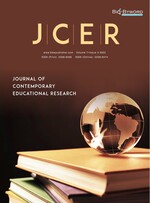Abstract
Smart education is the future and development direction of higher education. Taking the graduate course Crime and Police Theory as the research subject, the shortcomings of smart education, which include the lack of understanding of the concept of smart education, the limited content structure of smart education, the poor cognition of smart education among teachers and students, and inadequate hardware and technical support for smart education, are systematically analyzed. In view of these shortcomings, several strategies are proposed, including improving the smart education curriculum development plan and management level, ensuring the construction quality of smart education projects, and raising funds for smart education construction from various sources.
References
Yang C, Wu F, 2022, Design Framework of Deep-Learning-Oriented Smart Class. Open Education Research, 28(6): 91–100.
Gu X, Du H, 2021, The Theoretical Framework, Development and Future Prospect of Smart Education. Journal Of East China Normal University (Educational Sciences), 8: 20–32.
Li H, Miao W, 2020, Challenges and Solutions: Colleges and Universities in the Age of Artificial Intelligence Should Pay Attention to the Education of Value Judgment. China Educational Technology, 2: 43–49.
Smart Education of China, viewed on February 28, 2023, https://higher.smartedu.cn
Howard P, 2015, Digital Citizenship in the Afterschool Space: Implications for Education for Sustainable Development. Journal of Teacher Education for Sustainability, 17(1): 23–34.
Demir KA, 2021, Smart Education Framework. Smart Learning Environments, 8(29): 1–36. https://doi.org/10.1186/s40561-021-00170-x
Li Z, Zhang K, 2022, Promoting Wisdom in Smart Teaching: The Weaknesses of Smart Teaching In Colleges in the Era of Smart Education and the Reforms. Jiangsu Higher Education, 12: 115–121 + 150.
Selwyn N, Hillman T, Eynon R, et al., 2020, What’s Next for EdTech? Critical Hopes and Concerns for the 2020s. Learning, Media and Technology, 45(01): 1–6.
Hwang G-J, Tu Y-F, 2021, Roles and Research Trends of Artificial Intelligence in Mathematics Education: A Bibliometric Mapping Analysis and Systematic Review. Mathematics, 9(6): 584–603.
Williams P, 2019, Does Competency-Based Education with Block Chain Signal a New Mission for Universities?. Journal of Higher Education Policy and Management, 14(1): 104–117.
Anoop A, Ubale NA, 2020, Cloud Based Collaborative Filtering Algorithm for Library Book Recommender System. 2020 Third International Conference on Smart Systems and Inventive Technology (ICSSIT), IEEE, 695–703.
Babatomiwa O, Al-Turjman F, Nadire C, 2022, Interactive and Innovative Technologies for Smart Education. Computer Science and Information Systems, 19(3): 1549–1564.
Karimanzira D, Rauschenbach T, 2019, Enhancing Aquaponics Management with IoT-Based Predictive Analytics for Efficient Information Utilization. Information Processing in Agriculture, 6(3): 375–385.
Zhang Y, Yip C, Lu E, et al., 2022, A Systematic Review on Technologies and Applications in Smart Campus: A Human-Centered Case Study. IEEE Access, 10: 16134–16149.
